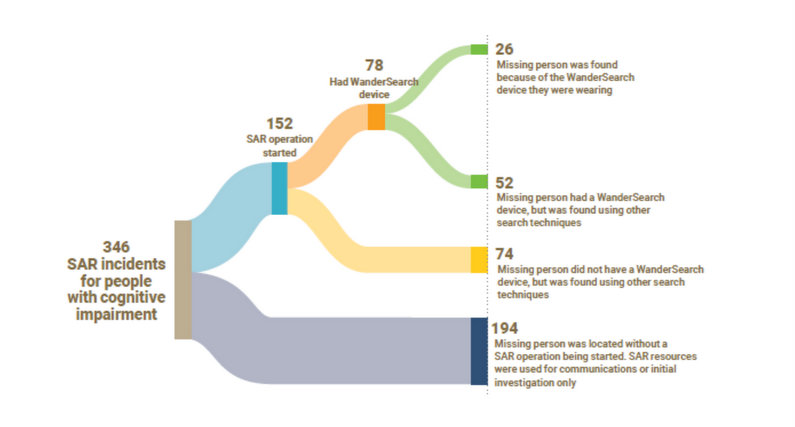
Searching for people with cognitive impairment
Last year, nearly all search and rescue incidents for people with cognitive impairment were resolved within five hours.
Brain injuries, neurological illness, dementia and intellectual disability are all examples of cognitive impairment. Around a quarter of all land-based search and rescue operations last year were for people with cognitive impairment.
Previously, we have used the term 'wanderer' to describe people with cognitive impairment who go missing. However, this term does not recognise that many people with cognitive impairment travel purposefully, rather than wandering aimlessly.
The number of people at risk of going missing due to cognitive impairment is predicted to increase significantly over the next few decades. The New Zealand Dementia Foundation estimates that over 70,000 people in New Zealand are currently living with dementia, and this number is expected to triple by 2050. Six out of ten people with dementia will go missing at least once.
For the year ending 30 June 2024, there were 346 instances where Police were notified that a person with cognitive impairment had gone missing. Of those, 152 required a search and rescue operation to find the missing person.
There were 26 search and rescue operations that were resolved because the person was wearing a WanderSearch pendant. These pendants contain a small radio frequency transmitter, which can be picked up by search teams using specialist equipment.
The Safer Walking website has strategies and tools to support people with cognitive impairment who may be at risk of going missing.
Infographics data source: SARdonyx, between 1 July 2023 and 30 June 2024
* Weighted average of 90 percent of all SAR incidents
Enjoy this story?
Sign up to our Link Newsletter to receive stories like this plus NZSAR news and announcements direct to your inbox, every six weeks.
Follow NZSAR on LinkedIn for more SAR news, announcements and discussion.
This story was originally published in the September 2024 issue of Link magazine, which is produced by the NZSAR Secretariat for the wider search and rescue sector.
